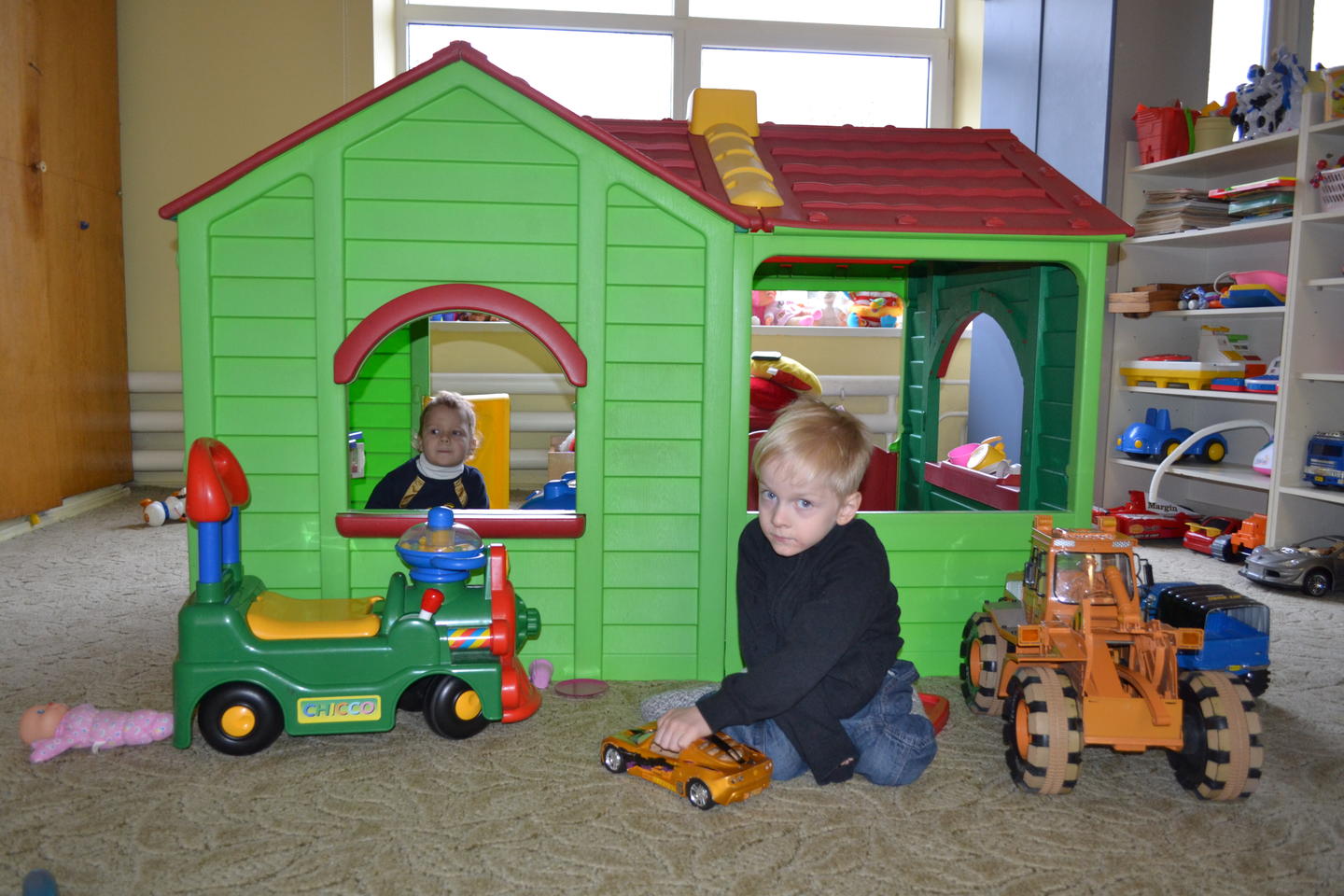Despite steps to take some of the financial pressure off families with disabled children, improvements in infrastructure and an increase in the number of specialists working with children with special needs, the economic crisis still affects these Latvian families. As many parents of these children work long hours, social services struggle to meet demand.
According to the European Agency for Special Needs and Inclusive Education, the integration of children with disabilities into mainstream education remains a challenge, in spite of the considerable efforts by central and local authorities and civil society actors.
That is why the ‘Mes esam lidzas’ Rehabilitation Centre, a Riga-based NGO aiming to promote social integration of children with disabilities and helping them to prepare for school and pre-school, receives €85 158 from Iceland, Liechtenstein and Norway through the EEA Grants. Andra Greitane, the Director of the centre, confirms that more work needs to be done to fully reach out to this vulnerable group:
“Children with severe disabilities are rarely accepted in pre-school, and the focus is much more on the physical aspects, not the psychological,” Greitane explains.
Cerebral palsy and autism
Most children involved in the project have cerebral palsy or autism. To help these children the ‘Mes esam lidzas’ rehabilitation centre focuses on the benefits of early intervention.
“Early intervention is the child’s best hope for the future. It provides the child with instructions to improve his or her skills and remediate areas of weaknesses,” Greitane says.
Professionals with different educational backgrounds are involved in the project. The team consists of a physiotherapist, occupational therapist, speech therapist, podiatrist, special educator and university students working as assistants. Greitane also puts a great emphasis on involving the parents:
“When the parents receive more detailed information, they have a better understanding of their child’s needs and it is easier to assess progress,” she explains.
Tailor-fit treatment
To improve the programme a new sensory integration programme will be created. The programme will include ten interactive games and tests to better assess the development level of the child. Each child will have a personalised profile, so that it is possible to follow the development and compare results. The project will also include the purchase of a lift chair and renovation works at the Centre.
The sensory integration programme will be tested and implemented with the assistance of a project partner, the Icelandic Cerebral Palsy Organisation. 20 Latvian children, aged three to seven, are expected to directly benefit from the programme and Icelandic children are also expected to benefit.
“Hopefully, the methods used in the new sensory integration programme can be applied to Icelandic children as well,” says Björn Arni, Director of the Icelandic Cerebral Palsy Organisation.
Long term cooperation
The Riga City Council Welfare Department is a project partner and co-finances the project. They have been cooperating with the ‘Mes esam lidzas’ Rehabilitation Centre since 2000. As more disabled children receive help, the need for social services is also increasing.
“This project will help disabled children into the community and reduce the risk of social exclusion by making the transition to school easier. Our partnership makes it easier to improve the quality of the services provided to children with disabilities,” explains Andris Izinkēvičs, Senior Officer at The Riga City Council Welfare Department.
Later in the project cycle, a workshop will be held in Latvia, focusing on different approaches to facilitate disabled children’s education.
Mr Arni is already seeing the mutual benefits:
“After having worked together for about a year, we have discovered that we are faced with many of the same challenges. Both Iceland and Latvia are small countries with small populations, with a need for a stronger infrastructure and information systems for children with disabilities. This partnership is important for both of us.”
About the project
The project started in December 2012 and will end March 2015.
